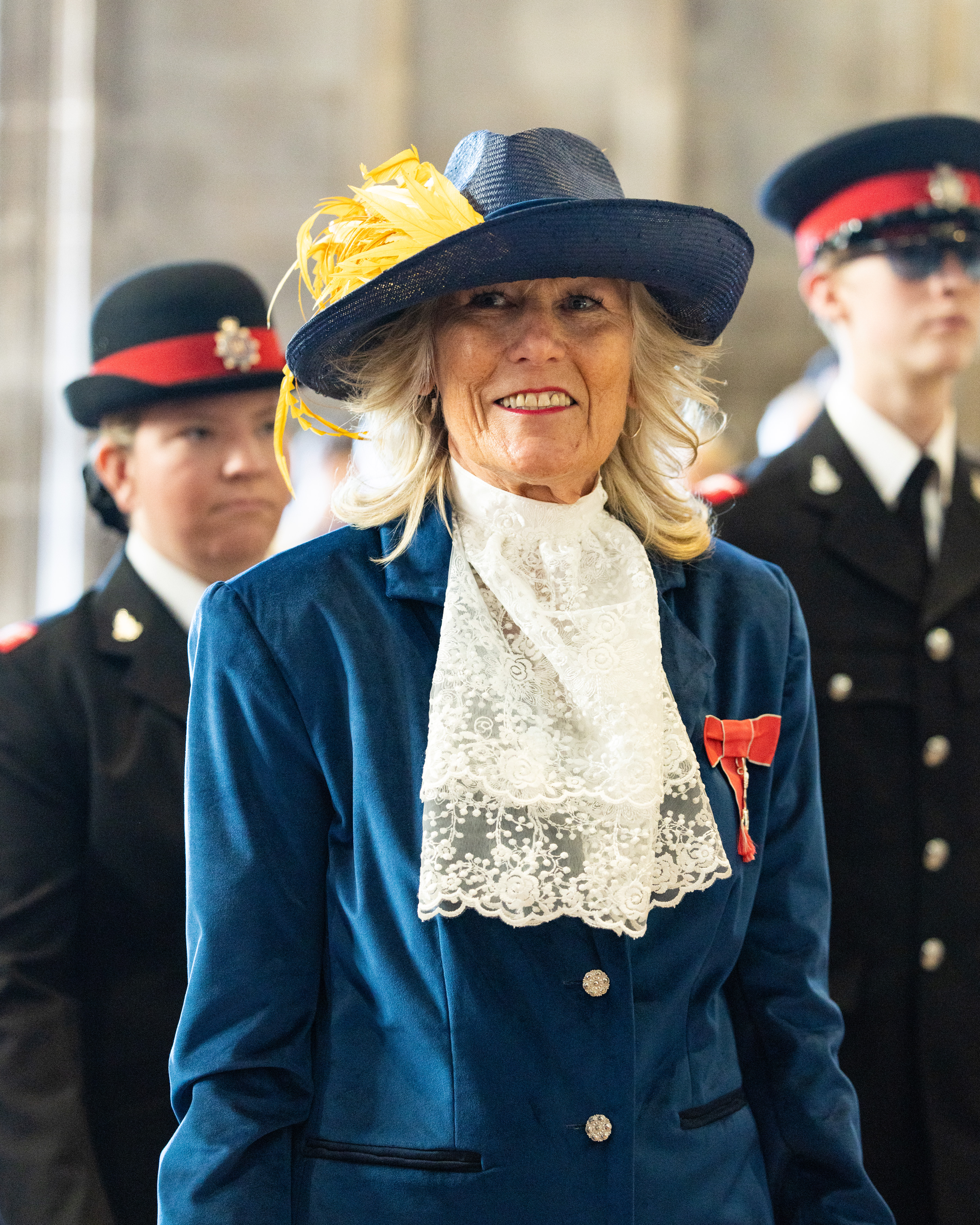The High Sheriff of Gloucestershire
About
The role of the High Sheriff traditionally involves attendance at royal visits in the County and support for His Majesty’s High Court Judges when on Circuit. These days, however, High Sheriffs play an increasingly active and supportive role within their Counties both in relation to the Police and emergency services and in lending encouragement to public sector agencies such as the probation and prison services and to voluntary sector organisations involved in crime reduction and social cohesion.
Julie Kent- Current High Sheriff
Julie grew up in Gloucester and went to Denmark Road High School for Girls followed by studying Jazz & Light Music at Leeds College of Music. She performed all over the world as a saxophone player and singer until she settled back in Gloucestershire marrying Bernard in 1990.
Sadly they lost their first and only child, at the time, to cancer when Emily was three years old which resulted in them forming the Emily Kent Trust for children with cancer in the County and the Paediatric Oncology Unit at Gloucestershire Royal Hospital is called the Emily Kent Unit.
They were later blessed with a son and daughter and moved into a boarding house at Dean Close School in 2001 and closed the charity. Julie taught flute, clarinet and saxophone, organised weekend activities and ran the community action for many years.
She became the Vice Chair of the Pied Piper Appeal in 2014, chaired Cheltenham Open Door from 2019 including navigating the charity through the pandemic providing a service for the guests and later an important move to bigger premises.
In 2018 Julie was named as one of the fifty greatest women in Gloucestershire followed by the award of Most Outstanding Woman in the Charitable Sector in the West. Julie was awarded an MBE for services to charity and founding the Emily Kent Trust in 2020.
Since retiring from Dean Close in 2020 Julie oversaw the fundraising at Pied Piper during the pandemic and in 2023 raised £500,000 in one year to fund a psychologist for children with cancer and their families on the Emily Kent Unit.
She has been the Warden of the Honourable Company in the last year and in her spare time enjoys looking after her granddaughter and playing her sax at small functions.
Julie is keen to visit many charities across the County in the year ahead.

Visit the Gloucestershire High Sheriff's website.
'Getting Court'

In addition to resources and initiatives run in the past with previous High Sheriffs, January 2012 saw the launch of the latest initiative of this partnership, 'Getting Court', co-ordinated by the previous High Sheriff, Mark Heywood. This resource is designed for use in secondary schools or colleges and is a series of lessons explaining the workings of the Crown Court system of England and Wales, alongside some innovative lessons to challenge pupils, e.g. to question if they would speak up for justice, no matter what the risk, as well as a host of other related learning opportunities.
The project fits into the existing PSHE & Citizenship part of the National Curriculum. This resource has been carefully tailored to respond to the curriculum in a way which will provide an introduction for both teachers and students at the heart of its purpose, which is to attend a working Court to see and hear the sometimes harsh realities, of the criminal justice system, being played out. Getting Court is a very easy to use, off the shelf resource, written by teachers who have been supported by professionals who work within our judicial system.
The resource covers the following:
-
What happens if you have to make a choice?
-
What happens if you break the law?
-
What happens if you have to speak up?
-
What happens if you are found guilty?
-
What happens if you visit a court?
And finally, some assessment for learning ideas and useful websites.
You can read the table of contents of the lesson pack here. One chapter gives guidance for teachers wishing to take students to Crown Court – this includes draft parental consent letters and risk assessments.
Launched across the county in January 2012, this resource was rolled-out to all Gloucestershire secondary schools and the visits have been running since October 2011. Out of all the replies received from children and young people who have visited the Crown Court in action, through this programme (1 visit is run per month), the following statistics show the impact on these children and young people.
41 children and young people changed from having a low level of awareness to a high level of awareness of the Crown Court System and how it works in England and Wales
46 children and young people reported that as a result of the Crown Court visit undertaken, their behaviour, or the behaviour of others, will change in the future.
Reasons for this reported change given by the children and young people have included:
-
It will influence them to behave well
-
More awareness of punishment
-
Aware of consequences now make me think more
-
Was the real world – need to be more like an adult – harsh sentencing for doing things wrong so need to be careful
-
More awareness of punishment
-
Would be punished fairly
-
The consequences of doing wrong scared them
-
Getting in to trouble would affect their future and lifestyle
-
Would be scared of going to prison
Any enquiries about Getting Court training please contact Di Harrill, one of the Lead Teachers on the team, at di.harrill@ghll.org.uk or one of the GHLL administrators ghll@Gloucestershire.gov.uk
High Sheriff of Gloucestershire for 2023-24 year in review
Read Henry Robinsons reflection on his year as High Sheriff of Gloucestershire, including the Getting Court programme for children.
Tagged under: crime, British Values, hate crime, justice system, sheriff, Getting Court, Young Offenders
Was the information on this page helpful? 


